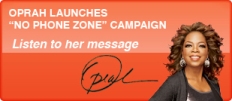[ad_1]
Timberland bought Ipath. Pardon the blatant stereotyping and religious insensitivity, but as most of us have become aware, Jah Rastafari skateboarding moves units these days. And reggae music in skate videos is like the new Hieroglyphics. Over the past decade, with the emergence of staple roots radical skaters from Karl Watson to Nyjah Huston and companies from Satori Wheels to Organka, the buffalo soldiers have become a sizeable clique within skateboarding’s neatly delineated sets of categories. Dreads and “giving thanks” are on about as heavy a rotation these days as leather jackets and armbands in the Banker Bootleg heyday. And yet, there was a time, back in toes magical decades known as the 80s and 90s, when reggae music in a skate video was like Rush Limbaugh in a hybrid-it didn’t happen. You’d have better luck catching techno than Peter Tosh. Meanwhile the philosophies and religion that reggae music praise and encompass were also virtually non-existent within our great pastime.
Climb down the beanstalk back to ’89 and you will find the man who more or less single-handedly planted the seed of reggae music in skateboarding’s sometimes infertile soil. After leaving Alva Skates, Jef Hartsel joined Jesse Martinez as one of the first two riders to take a chance on Steve Rocco’s recent upstart SMA Rocco Division (soon to become World Industries) in ’88. The two big name 80s pros served as a credibility launching pad for Rocco and helped him usher in the emerging 90s street-skating revolution with the likes of Jeremy Klein, Ron Chatman, and Chris Pastras, in addition to lending him the umpf to pick up other big name pros/investors like Rodney Mullen and Mike Vallely. In World Industries’ inaugural video, Rubbish Heap, Hartsel and Martinez’s style of skating had already begun to hi the breaks for what was considered fresh at the time. However, in retrospect, if you watch Hartsel’s part today, it’s an absolute gem. He throws down someof the best flowing curb combos, frontside slappies with style, pool slashes that would make Dave Hackett proud, and a whole host of nollie variations like his 360 nollie up the Santa Monica Beach curbs sidewalk on a board with no nose.
Most importantly-the song, “I N I Style” is credited to Jamie Zebulon, Albert Naphtali, African Unity, and J.H (a.k.a Hartsel himself). Meaning, not only did Jef introduce the majority of skateboarding to Rastafarianism and reggae music, he also helped score the beat sampling Shabba Ranks’ “No Brother Diss,” which to be honest, is pretty damn ill. In addition, aside from Mike V’s Milk song (“Another Crime”), and Jeremy Klein’s Casio Nintendo beats, Hartsel’s part contains the only actually music in the video-intro and credits included- making it stand out all the more.
Currently residing in Honolulu, Hawaii, moonlighting as DJ Manifest and the artist knows as Manifest, Jeff’s last foray through the skate world came in ’95 when he had a brief run again with Rocco, starting Shaolin Skateboards. Retaining his contacts from the design and execution of that project, Hartsel went on to collaborate on a number of sneaker designs with other artists and can presently be found still shredding the island’s many pools along with designing his own clothing line by the name of Poetree Movement
[ad_2]


